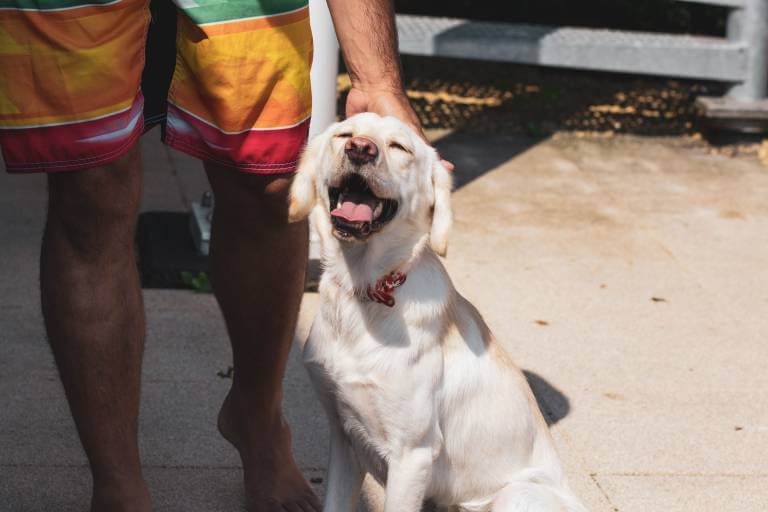How Much Are Shih Tzu Puppies?
Post Date:
December 10, 2024
(Date Last Modified: November 13, 2025)
Shih Tzu puppies vary widely in purchase price and lifetime ownership cost, influenced by lineage, health screening, and seller type.
Typical Price Range for Shih Tzu Puppies
Across the United States, pet-quality Shih Tzu puppies commonly sell for $500 to $1,500[1]. Show-quality or champion-line puppies often command $2,000 to $7,000 or more depending on titles and demand[1]. Retired adults or companion adults frequently fall into a lower band, commonly $300 to $800 when rehomed from private sellers[1].
Price can also shift by age and rarity: puppies under 6 months typically cost more than adults because buyers prefer younger animals for early socialization[1]. Certain coat colors or rare patterns may add premiums of several hundred dollars in some markets[1].
| Category | Low | Mid | High |
|---|---|---|---|
| Pet-quality puppy | $500 | $1,000 | $1,500 |
| Show/breeding prospect | $2,000 | $4,500 | $7,000+ |
| Adult rehome/companion | $300 | $550 | $800 |
Key Factors That Drive Price
Breeder reputation and geographic demand are major drivers; prices often trend higher in dense urban areas with strong demand and fewer local breeders than in rural markets where supply can be larger but quality varies.
Pedigree and registration status create premiums because documented lineage supports show and breeding potential; paperwork and lineage verification add administrative costs and perceived value.
Health screening and age are commonly reflected in price: puppies sold with comprehensive pre-sale testing and written health guarantees generally cost more than those without documented screening.
Pedigree, Registration, and Show Lines
Registration with major kennel clubs establishes official records and can increase resale or breeding value; registration applications themselves are typically $25 to $40 depending on the registry and options chosen[1]. Championship titles and proven bloodlines can add thousands to a puppy’s price because of the expected genetic and conformation value[1].
Buyers should verify pedigree claims by requesting original registration paperwork and, where available, searchable online pedigree records from the registry listed on the papers; legitimate registries maintain traceable records and transfer procedures that a breeder should demonstrate.
Health Testing, Guarantees, and Contracts
Responsible breeders commonly perform a set of pre-sale screenings; for Shih Tzus this can include hip and patellar evaluations, eye exams by a veterinary ophthalmologist, and tests for hereditary conditions, with fees that vary by clinic and test type[2].
Medical guidance for puppies includes fluid maintenance and emergency dosing norms such as estimating maintenance fluids at about 60 mL/kg/day for small-breed puppies in routine care situations[2].
Typical breeder health guarantees usually run 1 to 2 years for congenital conditions, sometimes coupled with a contract that outlines refund, replacement, or partial reimbursement policies under defined circumstances[2]. Buyers should demand written guarantees and a clear refund/return clause tied to specific diagnostic findings.
Red flags include absence of veterinary records, no documentation of parental health testing, or promises of lifetime warranties with no written contract or examinable criteria.
Where to Buy and Price Differences by Source
Reputable hobby or professional breeders typically charge more because they invest in health testing, early socialization, and breeder education; backyard breeders and unvetted online sellers often list lower prices but carry higher medical and behavioral risk for the buyer.
- Reputable breeders: higher up-front cost, health testing, and a contract that usually includes a return policy and some health guarantee.
- Rescues and shelters: lower adoption or rehoming fees but limited predictability in age or lineage; adoption fees are commonly $50 to $500 depending on organization and included services[3].
- Pet stores/marketplaces: prices vary widely and may include puppies sourced from commercial breeding operations; buyer should demand records and direct breeder contact.
Online auction-style listings and classified ads can look inexpensive but often lack verifiable health documents and can be associated with transitory or long-distance transactions that complicate returns and health follow-up.
Upfront Costs Beyond Purchase Price
Initial veterinary care typically includes an exam, first vaccines, deworming, and microchipping; expect a first-visit cost commonly between $100 and $300 depending on region and clinic policies[4].
Spay or neuter procedures for small-breed dogs commonly range from $150 to $400 when performed by a general practice veterinarian, varying with local pricing and whether extras are included[4].
Basic supplies such as a crate, bed, leash, initial food, and grooming tools can add $150 to $400 in up-front expenses depending on quality and brand choices.
Ongoing and Lifetime Ownership Costs
Annual routine veterinary care—wellness exam, core vaccines, heartworm test where relevant, and flea/tick and heartworm prevention—commonly totals $300 to $700 per year for a small-breed dog under routine care schedules[4].
Professional grooming for a Shih Tzu is frequent due to coat maintenance; full-service grooming every 4 to 8 weeks can cost $50 to $100 per session, producing an annual grooming bill of roughly $600 to $1,200 if maintained monthly[5].
Pet insurance premiums, when purchased, typically range from $20 to $70 per month depending on coverage level and age at enrollment, and can offset major unexpected medical bills over a lifespan that commonly exceeds 10 years for the breed in many cases[5].
Planning for lifetime care, a conservative estimate for a small-breed dog’s lifetime cost (excluding purchase price) is often $10,000 to $20,000 depending on the level of preventive care, emergencies, and grooming choices.
Common Health Issues That Influence Value and Cost
Shih Tzus are brachycephalic and can experience related problems such as breathing difficulty and heat intolerance; these conditions increase risk and may require veterinary management that raises lifetime costs[2].
Breed-prone problems include dental overcrowding and periodontal disease due to small jaws, which may necessitate more frequent dental cleanings; professional dental scaling under anesthesia can cost $300 to $1,200 depending on extent of treatment[5].
Genetic conditions such as patellar luxation are common in small breeds; evaluation by an orthopedist and corrective surgery, when required, can range from $1,000 to $4,000 per limb in many referral centers[5].
Evaluating Offers and Negotiating Price
Ask sellers for verifiable veterinary records, registration paperwork, and references from previous buyers or local veterinarians; insist on written terms for health guarantees and return policies before transferring funds.
Negotiation strategies include referencing comparable local pricing and documented health testing to justify a lower offer, and requesting that any agreed-upon health screening be completed prior to final payment to avoid discovering expensive conditions after purchase.
Walk away if a seller refuses to allow a pre-purchase vet check or if required documentation is missing; reputable sellers will permit a neutral veterinary exam within a short window and will provide clear documentation.
Market Trends, Timing, and Regional Variations
Seasonal demand and local supply influence pricing: peak demand windows and supply shortages can push local prices substantially above national averages, while off-peak windows may present better availability and modestly lower prices.
Urban markets generally show higher median prices than rural markets due to higher demand and higher operating costs for responsible breeders.
Timing a purchase to avoid holiday or peak-breeding seasons can sometimes reduce competition for available litters and improve negotiation leverage with sellers.
Ethical Considerations and Red Flags
Signs of unethical sourcing include sellers refusing in-person visits, offering multiple unrelated litters at once, or providing vague health claims without paperwork; these are associated with higher long-term costs and welfare concerns for the animals involved.
Good breeders provide evidence of socialization, living conditions, and transparent communication about any known medical or behavioral issues; supporting responsible breeders and rescues promotes better welfare outcomes for dogs overall.
Sources
- akc.org — registration and breeder guidance.
- merckvetmanual.com — clinical care and breed-related medical information.
- avma.org — adoption guidance and shelter best practices.
- aaha.org — veterinary care cost and preventive care recommendations.
- vcahospitals.com — condition-specific treatment examples and procedure cost guidance.






